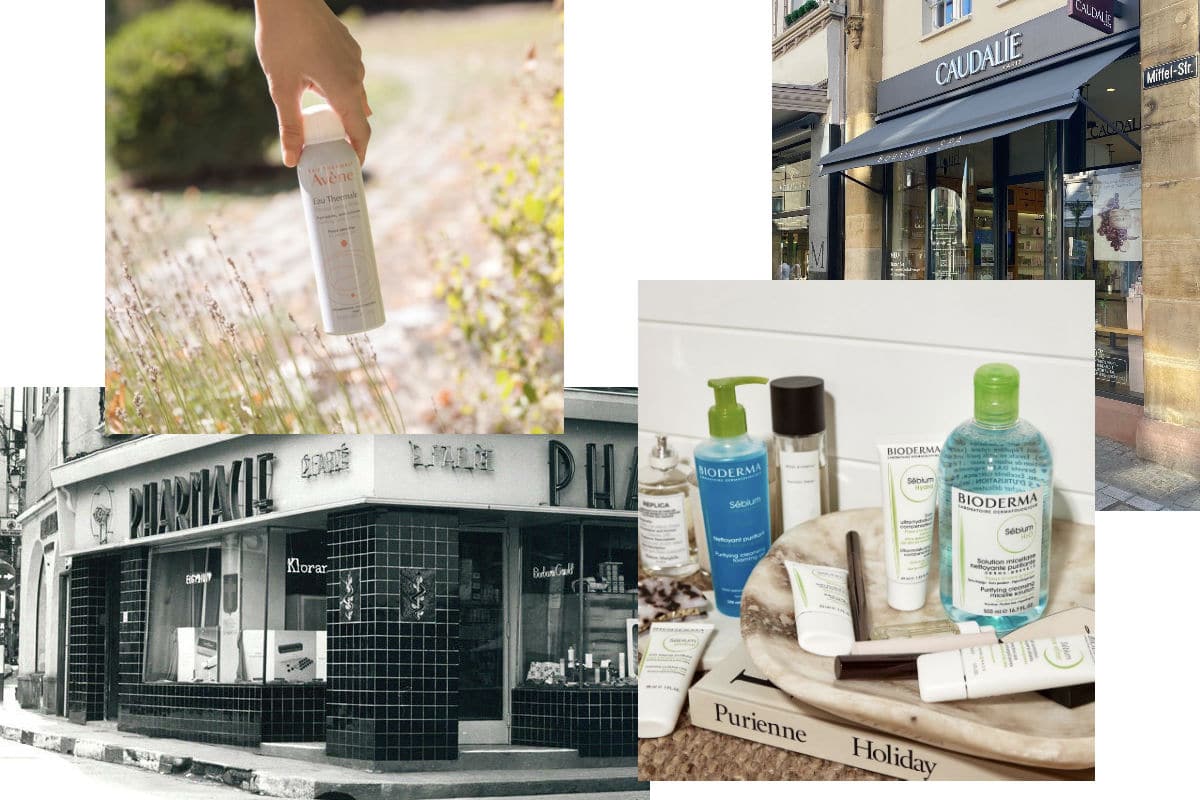
It’s official: the most important step of any skincare routine is sunscreen.
Fortunately for us, new and innovative sunscreens are introduced to the beauty market regularly. The intensity of the sun in Australia means our SPF regulations and approval processes are incredibly strict, therefore any sunscreens sold on the Australian market are some of the best in the world. But finding the perfect sunscreen for your face can be overwhelming when you’re looking at the difference between physical and chemical sunscreens and which one is right for you.
Looking after our skin shouldn’t be complicated. So we’ve created a guide to understanding the best physical or chemical face sunscreen to suit your skincare needs and values. We've looked for products deemed reef safe - meaning they don't contain Oxybenzone, a compound that can increase coral reef's susceptibility to bleaching. Based on research and our own testing of the products, here is a list of the best sunscreens for your face to help you move into summer with protection.
The best physical sunscreens for face
Ultraviolette Clean Screen SPF 30 gel
by the ultra-cool Australian brand Ultraviolette is a perfect sunscreen for reactive skin that’s prone to breakouts and can be a touch on the oily side. This fragrance-free formula will help mattify and moisturise whilst protecting the skin from UVA and UVB rays. It’s made to sit perfectly under makeup, and leaves a minimal white cast but will need more working into the skin than a chemical sunscreen. There is nothing harmful in this sunscreen and it’s reef safe.
Dermalogica Invisible Physical Defence SPF 30
is a weightless physical sunscreen that’s the best sunscreen for those that find their time behind a screen. This is due to the added blue light protection. This sunscreen blends into all skin tones and is a great all-rounder product for normal skin types. As an added bonus, it’s not harmful to the environment either and is reef safe.
Neutrogena Sheer Zinc Face lotion
is a great option for sensitive skin because the ingredients are minimal. It’s formulated with Colloidal Oatmeal and Feverfew Extract to reduce redness and irritation, and it’s SPF50 grade protects skin from harmful UVA and UVB rays. This sunscreen does not contain environmentally harmful ingredients and is reef safe but will take a little longer to work into the skin if you’re concerned about a white cast.
Invisible Zinc Face + Body Sunscreen
has SPF50, and protects the skin from UVA and UVB light. The key ingredient zinc oxide has been micronised, meaning this sunscreen doesn’t give you the usual zinc cream look. This sunscreen has a high SPF yet is still one of the best physical options for anyone with a darker skin tone. Nearly all physical sunscreens are reef safe, including this one.
Endota Natural Clear Zinc SPF50+
is an ultra hydrating sunscreen that features Zinc Oxide and skin soothing properties. The blend of coconut oil and vitamin E leaves the skin feeling soft and moisturised, and leaves the skin looking free from any zinc white cast. This product is reef safe and the packaging is also made from 100 per cent recyclable sugarcane plastic, which is even better.
The Kind Sunscreen
formulated with only nine ingredients that are Certified Organic or Sustainably Sourced where possible, this is the physical sunscreen for those with sensitive skin or allergies. It's SPF 30, vegan friendly and made in Australia, with its ingredients sourced from Australia, Germany, The Philippines or Thailand. Plus The Kind Sunscreen is also reef safe and the tube is made from existing excess plastic.

The best chemical sunscreens for your face
Ultraviolette Supreme Screen SPF 50 Sunscreen
is my personal favourite that I use every day underneath my makeup, so I had to include Ultraviolette again on this list. This is the ultimate sunscreen for makeup lovers who want a two in one product that acts as a primer and a sunscreen. Your foundation will stay put all day, and your skin will remain hydrated. This gem is free of Oxybenzone, meaning it is reef safe, and will leave you feeling guilt free.
We Are Feel Good Inc Sensitive Sunscreen Lotion
is an all in one sunscreen that you can conveniently use for your face and body. The Australian made and owned brand ensures that all their products are paraben, preservative, and Oxybenzone free, therefore reef safe. This sensitive sunscreen is ideal for easily irritable skin. But for those who would prefer, the brand has their signature sunscreen lotion, and a delicious coconut sunscreen lotion as well.
Mecca Cosmetica To Save Face SPF50+
is a cult classic, amongst its sister products within the To Save Face range. And lucky for us, they’ve released an alternative formula that is free of Oxybenzone and reef safe. (Make sure that it says this on the bottle, as both products look very similar). This sunscreen leaves the face with a non-greasy, matte finish, and is a perfect addition to one’s makeup routine.
Bondi Sands SPF50+ Face Sunscreen
is a reef safe, four hour water resistant lotion that will keep your skin feeling hydrated, while leaving an invisible finish on the skin. Ingredients such as Aloe Vera and Vitamin E leave the skin deeply moisturised. This sunscreen is great to pop in your beach bag to ensure you don't have to worry about enjoying your day in the ocean.
Bondi Sands Hydra UV Protect SPF50+
is an ultra hydrating sunscreen from their new hydra sunscreen range. This sunscreen offers plant based protection with ethically sourced algae, and is reef safe as well. This sunscreen features an airless pump, and doesn’t feel too heavy on your skin on a hot summer's day.
The difference between chemical and physical sunscreens explained
Physical sunscreens essentially create a mirror on the surface of your skin. Look for the key active ingredients Titanium Dioxide and Zinc Oxide to identify a physical sunscreen. Most physical sunscreens won’t include any harmful ingredients to our environment.
The minerals in most physical sunscreen formulations are white to reflect the sunlight. So, despite their good environmental credentials, downsides include their tendency to leave a white cast on darker skin tones.
Chemical sunscreens penetrate the skin and use man-made chemical filters to absorb and scatter UV rays. Chemical sunscreens generally don’t leave a white cast, but instead, leave a clear finish that most makeup wearers love. Unfortunately, a lot of chemical sunscreens are associated with harmful ingredients that may lead to sensitive skin and breakouts. Research also suggests chemical UV filters can bleach coral reefs in the ocean due to these harmful ingredients. As above, the main ingredient to steer clear of is called Oxybenzone.
You can read more about the difference between these two types in our guide to chemical versus physical sunscreens.
Imagery: Bella Thomas photographed by Oliva Repaci for RUSSH. See the full shoot here.



